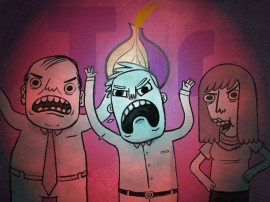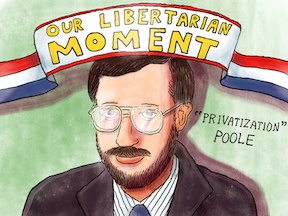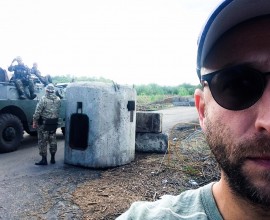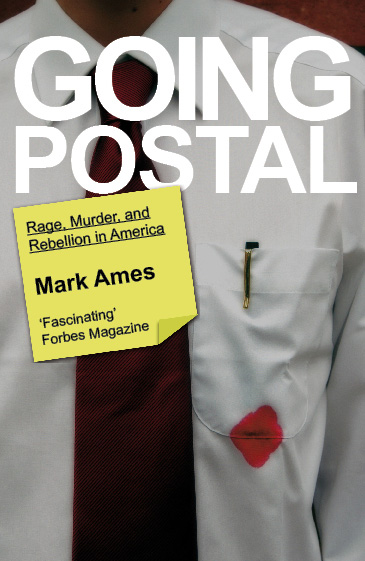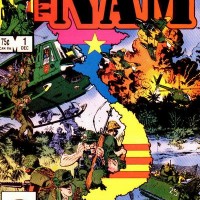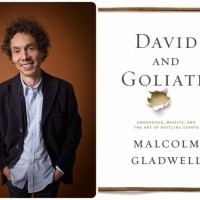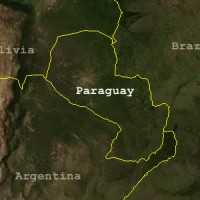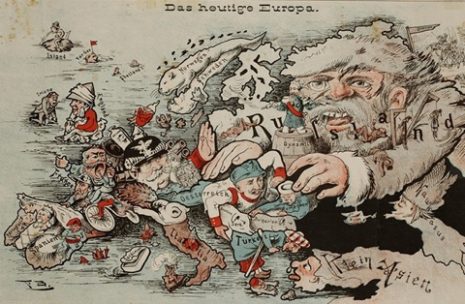
Last week, protesters stormed Macedonia’s parliament injuring over 100 people, among them almost a dozen members of the new ruling parliamentary coalition. The ostensible reason was the naming of an ethnic Albanian in the majority Slavic Eastern Orthodox country—but others had even simpler explanation.
“Macedonia ‘at risk from Russian meddling’”—the Sunday Times screamed, describing the protesters who stormed parliament as “pro-Kremlin thugs.” The Economist blamed the violence on “a party backed by Russia” while the Washington DC think-tank CEPA—funded by the Pentagon and an A-list of military contractors—warned about “Russia’s New Offensive in Macedonia” while on social media, former journalist Maxim Eristavi tweeted,
“Russian fingerprints are all over this dangerous mess in Macedonia. Russia-controlled media are in full hysteria mode inciting ethnic hatred”.
Indeed.
We just did a Radio War Nerd interview with the editor of the Balkanist, Lily Lynch, who’s spent the last several years living in Skopje, the capital of Macedonia, and in neighboring Serbia, and who found this outburst of “Russia did it!” not just wrong, but dangerously stupid.
Local politics anywhere in the world are incredibly messy and complicated and often times just plain stupid-crazy — all the more so in a compressed region like the Balkans— and trying to superimpose a simplistic DC-oriented Cold War narrative, blaming local problems on that dastardly alien villain, Ming The Merciless, is just fake news for respectable people. The real story is messy, granular, more local than you’d care to know, mostly involving Macedonia’s political parties, their constituencies and the meager spoils between them. There is some outside meddling—from Macedonia’s larger neighbors (Greece, Albania, Kosovo, Serbia, Bulgaria) from the EU and the US (which strong-armed the corrupt center-right party VMRO into calling early elections last December). Even George Soros has meddled in Macedonia in the past, though his influence there has waned considerably, just as local hysteria over Soros’ influence has reached fever pitch.
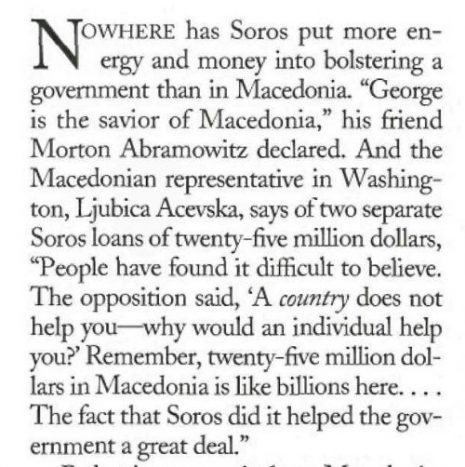
Excerpt from a 1995 New Yorker profile on Soros
The best quick summary of last week’s events, according to a lot of people familiar with the region I talked to, is this piece by Dimitar Bechev—“What Is Happening in Macedonia? It’s not an ethnic conflict, and it’s not Russia’s fault”. As Bechev and Lynch and others tell it, there really isn’t a good guy or a bad guy in this power struggle. It’s more like what the detective says in Zero Effect: “There’s just…a bunch of guys.”
The deeper you dig into the minutiae of Macedonian politics, the harder it is to then retell that story to a foreign audience. Which is one reason why it’s easier for a writer/editor to blame the mess on Putin, or on Soros, or on “ethnic tensions” between the majority Orthodox Slavs and the minority Muslim Albanians. Not only does that simplify the narrative, but it also appeals to built-in audiences—particularly audiences with resources that could be useful for Macedonians in their domestic political struggles. The audience for blaming “Putin” is the EU, NATO, and Washington, whose resources the opposition SDSM party has been leveraging to retake power; the audience for blaming “Soros” includes American neocons and Republicans in Congress, who’ve been backing Macedonia’s corrupt center-right VMRO party. So you have GOP Senators led by Mike Lee and Ted Cruz writing open letters to Tillerson demanding an end to the liberal Soros-State Department plot against Macedonia’s center-right government, because VMRO has convinced some Republicans that Macedonia’s problems are really a proxy war between American liberals and conservatives; and you have others publishing in the Washington DC insider rag, The Hill, warning “GOP Senators, Don’t Side with Russia on Macedonia”—again falsely painting the domestic political fights as an extension of our own.
The point is that these simplified, superimposed framings serve a political lobbying purpose—as well as dumbing down the story to make it easy for dumb-dumbs to read. Sleazy and stupid—that’s how DC likes ’em.
And then there’s always Dana Rohrabacher, the Ur-rightwing hippie from the beaches of Orange County. Rohrabacher’s contribution to this mess came a couple of months ago, when he told an Albanian TV interviewer that Macedonia wasn’t a real country, and that it should be divided up between Albania and Bulgaria—which didn’t go down well in Macedonia. If Rohrabacher put any thought into that comment at all, he was just pandering to his Albanian audience. That’s a big if—considering this is the same guy who once dressed up in drag calling himself “Diana” to visit Sirhan Sirhan in prison, to “solve” Sirhan’s 1968 assassination of RFK.
And yet even this stupid sleazy Rohrabacher story calling for the dismantling of Macedonia couldn’t be reported without somehow pinning it all on Putin. Foreign Policy wrote that of course Rohrabacher would try to destabilize the Balkans—after all he was “once called ‘Putin’s favorite congressman'” [which links to a headline in Politico, the same outlet that still claims Putin offered Poland to carve up Ukraine, a story whose only source, Radislaw Sikorski, retracted it, leading all the other media to issue retractions on the fake news story—except of course Politico]. The Independent just flat-out lied, taking a warning by Lavrov that outside powers were trying to break up Macedonia, which Russia opposes, as an endorsement by Lavrov of that plan:
Mr Rohrabacher’s comments echo a suggestion by Russian Foreign Minister, Sergey Lavrov. In 2015, he said that “ideas have been floated” about giving the Republic of Macedonia “to Albania, and another part to Bulgaria”.
You can tell by the weird carve-up of Lavrov’s quote that something’s wrong here—and something is wrong. Lavrov was actually arguing that Macedonia was being pressured by its neighbors and the EU to join sanctions against Russia, and being threatened with dissolution if they didn’t obey. This is hardly an endorsement; it’s just crude quote-chopping to fit a pre-ordered New Cold War narrative. But hey, who’s got time to fact-check?
We’re seeing this same superimposed narrative, with Russia as the useful foil, in a lot of places these days. In Albania, opposition protesters have been holding a Maidan-like tent city protest in front of the prime minister’s office since February, demanding fresh elections. A little over a week ago, they vowed to “radicalize” the protests and bring transport to a standstill. So the prime minister, Edi Rama, is doing what a lot of politicians do—turning up the nationalism heat. A couple of weeks ago, Rama warned that Albania would merge with Kosovo, forming the dreaded “Greater Albania,” if EU talks didn’t go their way. Rama also heated up tensions in Macedonia by making sure every Macedonian knew he was exerting some influence over Macedonia’s Albanian political parties. This plays well with Albanian voters, but creates new problems for Rama in Washington and Brussels. So, on point, Albania’s foreign minister flew to Washington late last month warning that Albania was all that stood in the way of the Russian bogeyman.
And then in neighboring Montenegro, going into last October’s elections, the leader of the ruling party since 1991 accused Russia of financing Montenegro’s opposition parties, and then claimed to have busted a plot by Russian and Serbian nationalists to assassinate him. The Pulitzer team at the New York Times has regurgitated this line hook and sinker—the theory being that Russia is trying to destroy Montenegro’s independence and democracy in order to stop it from joining NATO.
Which would perhaps be plausible, but for a few things: First, the Montenegrin leader who claimed he was the target of the Russian assassination plot, Milo Djukanovic, is one of Europe’s leading mafia gangsters, a former Communist Party boss who ruled Montenegro like a Central Asian autocrat since 1991 (he just formally stepped aside for his anointed successor). In 2015, the OCCRP (Organized Crime and Corruption Reporting Project) named Djukanovic “2015 Man of the Year in Organized Crime” calling him “Europe’s last dictator” who “has built one of the most dedicated kleptocracies and organized crime havens in the world.” Djukanovic was indicted by Italian prosecutors for heading a billion-dollar cigarette smuggling ring with the Italian Mafia, in a crime wave that included numerous assassinations— including of investigative journalists. Ultimately Djukanovic was granted diplomatic immunity—many suspect he worked out a deal with western powers to move Montenegro into NATO in return for immunity. Another problem with this neat framing is that NATO has never been popular in Montenegro. Why? Because NATO bombed Montenegro in 1999, during the Kosovo War. Djukanovic understood what the polls were saying, which is why he refused to hold a popular referendum on the issue. Instead, he and the Montenegrin media beat the “Russia is undermining Montenegrin democracy [sic!]” drum to divide and conquer—and last month, Montenegro’s parliament voted to join NATO, with just under half the parliament members boycotting the vote.
And now DC insiders have figured out how to use this spin on a new front, Afghanistan. This is where the New Cold War framing gets serious. I’ll talk more about that shitshow tomorrow.
Mark Ames is co-host of the Radio War Nerd podcast with Gary Brecher (aka John Dolan). Subscribe here.
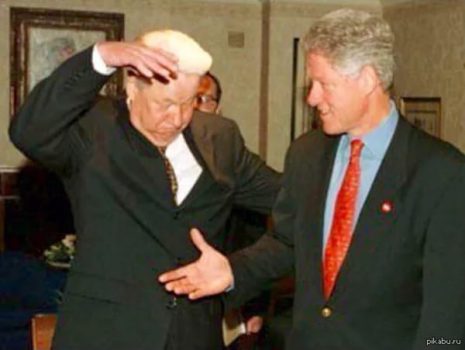
The Guardian just published a piece on Russia’s inequality problem — first and worst in the world, according to a new Credit Suisse report. Funny to see Credit Suisse wringing its hands over Russian inequality, given that bank’s active complicity in designing and profiting off the privatization of Russia in the early-mid 1990s. Shortly before Credit Suisse arrived in Russia, it was the most equal country on the planet; a few years after Credit Suisse arrived and pocketed up to hundreds of millions in profits, Russia was the most unequal country on earth, and it’s pretty much been that way since.
Credit Suisse’s new Russia branch was set up in 1992, and it was led by a young twenty-something American banker named Boris Jordan, the grandson of wealthy White Russian emigres. Jordan was key to the bank’s success, thanks to his cozy relationships with Russia’s neoliberal “young reformers” in charge of privatizing the former Communist country. In the first wave of voucher privatization—when all Russians were issued vouchers which they could then either convert into shares in a newly-privatized company, or sell off—Credit Suisse’s Boris Jordan gobbled up 17 million of Russia’s privatization vouchers, over 10 percent of the total.
Inside connections were the key. While working for Credit Suisse, Jordan advised the Yeltsin government on how to implement Russia’s disastrous voucher privatization scheme. Jordan worked together with the two of the most powerful US-backed Russian free-marketeers: Prime Minister Yegor Gaidar, architect of the shock therapy program that led to the mass impoverishment of tens of millions of Russians; and Anatoly Chubais, architect of Russia’s privatization program, which created Russia’s new billionaire oligarch class. Gaidar’s shock therapy confiscated wealth from the masses; Chubais’ privatization concentrated wealth in a few hands. And Jordan’s Credit Suisse advised, traded off, and profited from this wealth transfer. This was the trio that played a central role in creating the inequality that Credit Suisse is now wringing its hands over. (You can read an interview with Jordan about how he co-advised the voucher implementation in 1992, which is stunning for a lot of reasons— he admits they sped up its implementation of voucher privatization to make sure that Russia’s parliament, i.e. representative democracy, couldn’t interfere with it. Democracy was not something anyone involved in Russia’s privatization in the 1990s gave a shit about.)
The conflicts-of-interest here were so over-the-top, they were almost impossible to wrap your head around: Credit Suisse banker Boris Jordan helped implement the voucher privatization scheme with Russia’s top political figures; and Credit Suisse massively profited off this same privatization scheme. And it was all done with the full backing and support of the US Treasury Department and the IMF.
(Another major beneficiary of Russian privatization vouchers was a murky hedge fund run by the billionaire Chandler brothers. They made a killing snapping up vouchers cheap, converting them into stakes in key Russian industries, and selling their stakes for huge profits. I wrote about them a couple of years ago because one of the Chandler brothers plowed some of his Russia loot into something called the Legatum Institute—a Dubai-based neocon front group that’s been bankrolling the “Russia disinformation panic!” for several years now, issuing report after report after report on the Kremlin disinformation scare by their protege Peter Pomerantsev. You have to let these vulture-capitalist billionaires wet their beaks a little, or they’ll raise an army of human rights activists to regime-change your ass.)
Shock therapy, first implemented in 1992 and not really ended until Russia’s devastating financial crash in 1998, was politically useful in that by confiscating the Russian middle-class’s and lower-class’s savings, it created a massively unequal society. And that alone drove Russia further from its Communist recent past, which was the political goal that justified everything.
In 1994, this same young Credit Suisse banker, Boris Jordan, told Forbes’ Paul Khlebnikov about a scheme he was trying to sell to the Yeltsin regime. It was called “loans-for-shares” and when it was finally adopted at the end of 1995, it resulted in what many considered the single largest plunder of public wealth in recorded history: The crown jewels of Russian industry—oil, gas, natural resources, telecoms, state banks—given away to a tiny group of connected bankers. It was this scheme, first devised by a Credit Suisse banker, that created Russia’s world-famous oligarchy.
The scheme went something like this: The Yeltsin regime announced in late 1995 auctions under which bankers would lend the government money in exchange for “temporary” control over the revenue streams of Russia’s largest and most valuable companies. After a period, the government would “repay” the “loans” and the banks would give the their large stakes back to the government.
In reality, every single “auction” was rigged by the winning bank, which paid next to nothing for its control over an oil company/nickel company/etc. Even the little money paid by this bank was often stolen from the state. That’s because Russia used a handful of private banks as authorized treasury institutions to transfer government salaries and other funds around the country. This allowed the same bankers who were authorized as state treasury banks to keep those funds for themseles rather than distribute them to the teachers, doctors and scientists as salaries—so they did what was in their rational self-interest and kept the money, delaying salary payments for months or even years at a time, while they used the funds for themselves to speculate, or to buy up assets in auctions they rigged for themselves. It was pure libertarian paradise on earth—everything von Hayek and von Mises dreamed of—in practice.
By the time the loans-for-shares was actually put into effect in late 1995, Credit Suisse’s Boris Jordan joined up with an anointed banker-oligarch, Vladimir Potanin, to set up their own investment bank, Renaissance Capital. They raised their first private equity fund, Sputnik Capital—with George Soros and Harvard University as co-investors—and Sputnik Capital went on to take advantage of the loans-for-shares investment opportunities, which had even more help from the fact that Yeltsin made Potanin his Finance Minister in 1996.
This sudden mass wealth transfer from the many to the few had a devastating effect on Russia’s population. Inflation in the first two years of shock therapy and voucher privatization ran at 1,354% in 1992, and 896% in 1993, while real incomes plunged 42% in 1992 alone; real wages in 1995 were half of where they were in 1990 (pensions in 1995 were only a quarter in real terms of where they were in 1990). According to very conservative official Russian statistics, GDP plunged 44% from 1992-1998 — others put the GDP crash even higher, 50% or more. By comparison the Soviet GDP fell 24% during its war with Nazi Germany, and the US’s GDP fell 30% during the Great Depression. So what happened in the 1990s was unprecedented for a major developed country—by the end of the decade and all of the Washington/financial industry-backed reforms, Russia was a basket case, a third-rate country with an even bleaker future. Capital investment had collapsed 85% during that decade—everyone was stripping assets, not investing in them. Domestic food production collapsed to half the levels during perestroika; and by 1999, anywhere from a third to half of Russians relied on food grown in their own gardens to eat. They’d reverted to subsistence farming after a decade of free market medicine.
All of this had a catastrophic effect on Russians’ health and lives. Male Russian life expectancy dropped from 68 years during the late Soviet era, to 56 in the mid-1990s, about where it had been a century earlier under the Tsar. Meanwhile, as births plunged and child poverty and malnutrition soared, Russia’s death-to-birth ratio reached levels not seen in the 20th century. According to Amherst economist David Kotz, over 6 million Russians died prematurely during the US-backed free-market reforms in the 1990s. What’s odd is how little pity or empathy has ever been shown for those Russians who were destroyed by the reforms we backed, advised funded, bribed, coerced, and were accessory to in every way. They weren’t entirely America’s fault; Yeltsin and his US-backed “market bolsheviks” had their own cynical, ideological and political reasons to restructure Russia’s political economy in the most elitist, hierarchical unequal manner possible. But if the US had acted differently, given how much influence the Clinton Administration had with the Yeltsin regime, things could certainly have turned out differently. The point is—they didn’t. The inequality was the surest sign of success. It only became something to wring our hands about later, a soft-power weapon to smack them with, now that we have little to zero influence over Russia.
It’s interesting that our literature is filled with plenty of official empathy for Weimar German victims of that country’s hyperinflation, but nothing of the sort for Russians of the 1990s, who were, it was argued, being ennobled and lifted up by the linear thread of liberal history—they were heading towards the bright market-based future, can’t let a few knocks and scratches distract us! Can’t make an omelet without cracking a few eggs, as the West’s Stalin apologists used to say.
Here, for example, is a typical cheerleader story about the new Russian inequality, published in Businessweek in 1996—a fluff job on Boris Jordan’s Russian backer, Vladimir Potanin. Notice how the headline/subheader make clear that the hero of this narrative is the Russian billionaire, and the villains are the “angry masses” of poor envious Russians:
The Battle for Russia’s Wealth
Can hugely rich new capitalists weather a backlash from the angry masses?
Russia’s answer to J.P. Morgan could not be less like the eccentric, bulbous-nosed original. Vladimir O. Potanin is a shy, athletic man of 35. Holding court in his rosewood-paneled office on Moscow’s Masha Poryvaeva Street, the president of Oneximbank quietly gives instructions to two strapping bodyguards at his door. Cool and controlled, Potanin is a standout in a group of dynamic businessmen who have seized huge slices of the economy.
Which reads a lot like this fluff job in the Los Angeles Times, published around the same time, headlined “Whiz-Kid Banker Named to Russian Cabinet”. Which reads a lot like a Businessweek followup up with even more shameless hagiography, headlined “The Most Powerful Man in Russia”. You can try reading that last one if you want, but I recommend keeping a vomit bag close by—and a cyanide pill for good measure.
So this is the sordid and depressing backstory to the Credit Suisse report on Russian inequality—the story you definitely won’t and don’t read about in Credit Suisse’s own account. They’re a bank; their reports, while perhaps truthful, are far from The Truth—more like marketing pamphlets than serious scholarship.
Credit Suisse made a killing in Russia in the early-mid 1990s, dominating two-thirds of Russia’s capital markets deals—while tens of millions sank into desperate poverty. That too is inequality.
Jordan himself remained a powerful celebrity-investor through the early Putin era. In 1997, Boris Jordan was caught up in a major scandal surrounding the privatization of the national telecoms concern, Svyazinvest—which was won by a consortium that included Soros, Harvard, and a bank owned by Finance Minister Potanin and his partner, Mikhail Prokhorov, who today owns the Brooklyn Nets. The scandal was this: The government official in charge of auctioning off the telecoms to Soros-Harvard-Potanin-Jordan consortium, Alfred Kokh, had been given a shady $100,000 book advance by a shady Swiss company connected to Potanin’s bank. The book had not been written; the advance was unusually high; and the Swiss “publisher” which had never published a book before was itself incorporated and led by none other than Boris Jordan’s cousin, Tikhon Troyanos.
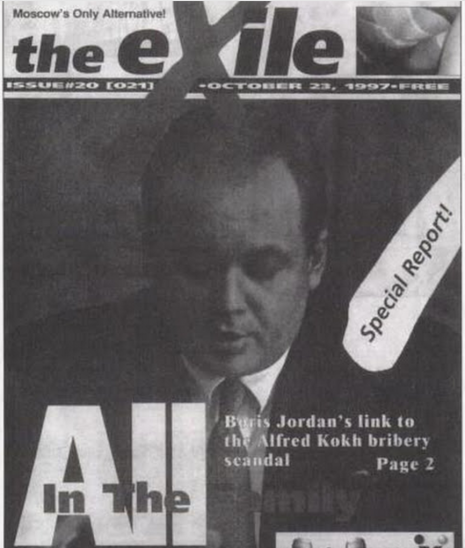
The revelations led to scandals, and Yeltsin was forced to fire his privatization chief Alfred Kokh, along with a handful of other corrupt US-backed “young reformers” caught getting paid on the eve of a rigged auction.
But what did it really matter? What really mattered to everyone who matters was the political structure of Russia’s economy. No longer egalitarian, no longer a threat to the neoliberal order—it now had the world’s most unequal society, and that was a good thing, because the new elites would identify their interests more with the interests of their Davos counterparts than with the interests of the “backwards” Russian masses, whose fate was their problem, not ours. This is when racist caricatures of the “backwards” Russian masses help—you don’t have to empathize with them, history is sending them to the trash heap of history, not you. The world was safe for business, and that was all the affirmation anyone needed to hear.
At the end of the Yeltsin era, I visited the sprawling suburban Moscow “compound” owned by Potanin and his banking partner, Mikhail Prokhorov, as well as Renaissance Capital—the bank first founded with Boris Jordan in the mid-1990s. It was a huge gated compound with several buildings, a mini-hotel, and a nightclub/concert hall. One of the first things I saw entering the gaming hall building was two familiar-looking men in track suits playing backgammon: Vladimir Potanin, billionaire oligarch; and Alfred Kokh, the fired, disgraced head of Yeltsin’s privatization committee.
The financial crisis of 1998 left Russia’s in complete tatters, and Boris Jordan was never the big shot that he had been before. His real value was providing cover for the new boss Vladimir Putin as he re-centralized power under Kremlin control. The first upstart oligarch that Putin took down was Vladimir Gusinsky. He was briefly jailed and then exiled to Israel. His once-respected opposition TV station, NTV, was “bought” by Gazprom, and Gazprom, needing a western-friendly face for its hostile takeover, hired Boris Jordan as the new general director of the network—and his old partner-in-crime, Alfred Kokh, the disgraced ex-privatization chief, as chairman of NTV’s board. Almost immediately, 25 NTV journalists— half the staff— “resigned”. Jordan’s job was to blunt western criticism of the Kremlin as it destroyed the lone critical voice on Russian television, and two years later, his job done, he moved on.
Today Jordan still runs the Sputnik Fund, such as it is—mostly a web site as far as I can tell. And he is listed as the founder of New York University’s “NYU Jordan Center for the Advance Study of Russia”. He looks like such a minor figure now.
Without any of this context, it’s as though Russia’s extremes of inequality that Credit Suisse just reported on suddenly appeared out of nowhere, as a manifestation of Vladimir Putin’s innate evil. As though nothing preceded him—the 1990s had never happened, and our Establishment has always sincerely cared about how Russians must suffer from inequality and corruption. Erasing history like this has a funny way of making America look exceptionally good, and Russia look exceptionally bad.
Mark Ames is co-host of the Radio War Nerd podcast with Gary Brecher (aka John Dolan). Subscribe here.

Yesterday I wrote about Nikolai Alekseyev, the very strange and very anti-Semitic Russian gay rights activist who, according to Novaya Gazeta, “provoked” Chechnya’s recent brutal crackdown on gays.
Now he’s suing.
(more…)

The current hysteria about Russia ain’t going away, that much is clear. There’s an enormous amount of propaganda, paranoia, fear, and comic lunacy about most of the reporting we’re getting out here. There’re also a lot of locally-generated horror stories coming out of Russia that we’re not receiving here. (more…)

Now that Trump has bombed Syria, everyone from Hillary Clinton to Fareed Zakaria — that is, the American meritocracy — agrees Donald Trump has finally become “presidential.” Trump gets it. He had his “Sputnik Moment.” He Made Washington DC Great Again.
The only question now is: Who is responsible for Trump’s ingenius new war? Who among his closest advisers came up with the novel plan to bomb yet another Muslim country? His heart-broken daughter Ivanka? His beady-eyed son-in-law, Jared Kushner? Carter “I think he’s an idiot” Page? Patton, the family Goldendoodle?
You’re looking in all the wrong places, folks. There’s only one world-famous advisor who gives advice as catastrophically stupid as this: The Great Gazoo. He preys on credulous meat-heads, and offers them the worst, deadliest advice — but with all the snotty confidence of a Bill Kristol:
“Ohhh Donald, you know what would help your tanking ratings? Don’t be a dumb-dumb Donald!”
“Gazoo, where have you been? I need you!”
“Never mind that dumb-dumb Donald, just take my advice and bomb Syria. It’ll be a cinch! You’ll never get sucked into a deeper war there!”
“I won’t?”
“No, dumb-dumb. Don’t bother me again until you’ve launched.”
“Okay Gazoo whatever you say!”
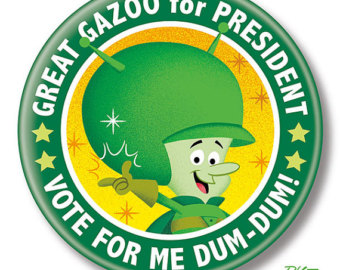
Indeed, the Great Gazoo has been leading world leaders over the cliff throughout the 21st C. Here are a few highlights:
2002:
POOF! “Oh Mister Preeeesident, it’s meeeee, Gazoo. You let Bin Laden get away, dumb-dumb, and now you’ve got a country called Afghanistan that’s of no use. Pretty soon, people are going to start asking questions about 9-11…”
“Boy am I glad to see you, Gazoo. What should I do?”
“If you just listen to me, Mr. President, I can solve your problems.”
“Really? How?”
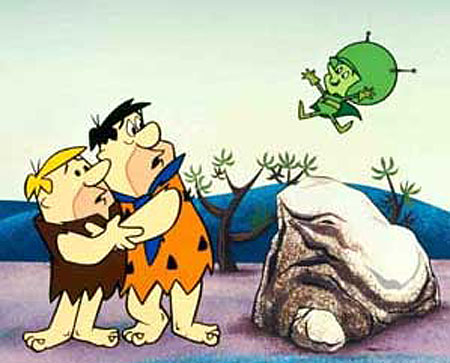
“It’s not that difficult, dumb-dumb. Invade Iraq. You earthlings are soooo slow.”
“But my dad says invading will be a problem.”
“You’re dad’s an earthling, dumb-dumb. It’ll be a cakewalk. The entire Middle East will become pro-American. I told him that a decade ago but he wouldn’t listen, because he’s a dumb-dumb.”
“I’ll listen to you, Gazoo.”
“I know you will, Georgie. It seems you’re the only earthling who isn’t a dumb-dumb. Now do as I say and invade Iraq.”
“What sort of planning should I do? How many troops should I use, Gazoo?”
“It doesn’t really matter, just have your troops bring lots of vases because the locals will greet them with flowers. Now, about North Korea…”
“I did as you said, Gazoo. I stopped talking to North Korea completely, and pulled everyone out of negotiations.”
“Good, North Korea should be begging to surrender to us in a matter of weeks, not months. Toodle-loo, dumb-dumb!” POOF!
2004…
“Gazoo, where are you? You gotta help me out, this Iraq thing is turning into a disaster!”

POOF! “Don’t be a dumb-dumb, Mr. President! If you’d listened to me and done it right, you wouldn’t be in this mess.”
“But you told me to invade Iraq, Gazoo!”
“Of course I did, dumb-dumb. And everything would have turned out perfectly if only you’d bombed Iran and Syria in the aftermath. Those two are mucking up a perfectly good occupation. Clearly I wasted good advice on a dumb-dumb. Now it’s your mess, not mine.”
“But Gazoo, I can’t invade Iran right now, our forces are overstretched, the Shia in Iraq are in revolt–”
“That’s not my problem, dumb-dumb. I told you to invade Iran, and you didn’t. If you don’t want to listen to me, do so at your own peril, dumb-dumb.”
“No wait, Gazoo, don’t leave me! You gotta help get me outta Iraq!”
“Toodle-loo, dumb-dumb!” POOF!
2006:
POOF! “Oh Ehuuuud Olmert, Mr. Prime Minister? I know how to get rid of the threat on Israel’s northern border. If you just listen to me, I can solve your problems, dumb-dumb.”
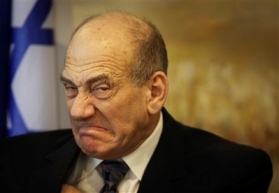
“Gazoo, is that you?”
“No, it’s Baal. Of course I’m Gazoo, dumb-dumb.”
“I’m sorry, Gazoo, it’s just.”
“Listen to me and shuttup, dumb-dumb. Now, here’s how to get rid of Hezbollah and win the next elections. Bomb the Shia villages and invade the south of Lebanon with armored columns. It’ll be a breeze, dumb-dumb. They’ll never bother Israel again.”
“Really, Gazoo?”
“Of course, dumb-dumb. You’re the one with the air force and tanks. Use them. Toodle-loo!” POOF!
TWO WEEKS LATER…
“Gazoo! Help me, it’s Ehud! Where are you, Gazoo?”
POOF! “I’m trying to have a bath, dumb-dumb. You earthlings have no manners.”
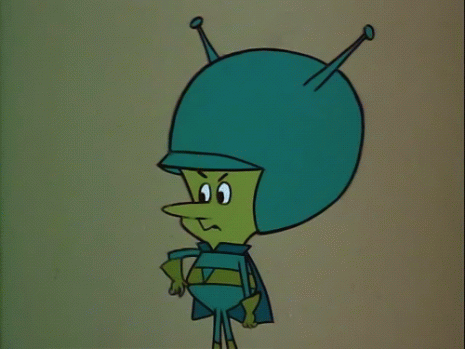
“But Gazoo, we’ve bombed and bombed and invaded southern Lebanon just like you said, and it’s turning into a military defeat. We’re losing to Hezbollah!”
“Of course you’re losing dumb-dumb, because you didn’t listen to me. Iran is the real problem, so you have to bomb Iran. Do I have to tell you everything, dumb-dumb?”
“But I can’t bomb Iran unless America bombs Iran with me. You said President Bush wouuld bomb Iran if I got in trouble, and they’re not bombing. What happened?”
“He’s a dumb-dumb too, just like his father. Just wait until he finds out that North Korea will set off a nuclear test bomb in a month–of course, if the dumb-dumb listened to me and continued not talking to North Korea, he wouldn’t be in this mess in the first place.”
“But Gazoo, I’m ruined if the war ends in a defeat like this!”
“You’re still here, Ehud? Well look, I can’t help a dumb-dumb who doesn’t listen to me, now can I, dumb-dumb? Call me when you’ve bombed Iran. They wouldn’t dare to retaliate, that’s for certain. Toodle-loo, dumb-dumb!” POOF!
2008:
POOF! “Oh Miiiiiisha, Mr. President of Georgia? Helloooo, it’s me, Gazoo. I know how you can regain South Ossetia and overcome your domestic political problems, if you just listen to me, dumb-dumb.”
“Gazoo? Boy am I glad to see you.”
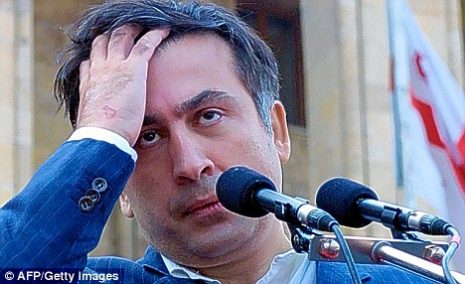
“I’m sure you are, dumb-dumb. So here’s my plan, if you’re not too much of a dumb-dumb to understand it: invade South Ossetia with the troops that America trained up for you. It’ll be a cinch–the Russians won’t even know what hit them.”
“Really?”
“Yes, really, dumb-dumb. You have Gazoo on your side, and the Russians don’t have Gazoo. Anyone who’s not a dumb-dumb realizes that the side with Gazoo wins.”
“I’m glad I have Gazoo on my side!”
“I see you’re learning, Misha. Maybe you’re not such a dumb-dumb.”
“How will my military victory in South Ossetia solve my political problems, Gazoo?”
“Well, dumb-dumb, you’ll be so popular you won’t need to kill or jail your political opponents anymore, because everyone will support President Saakashvili, war hero!”
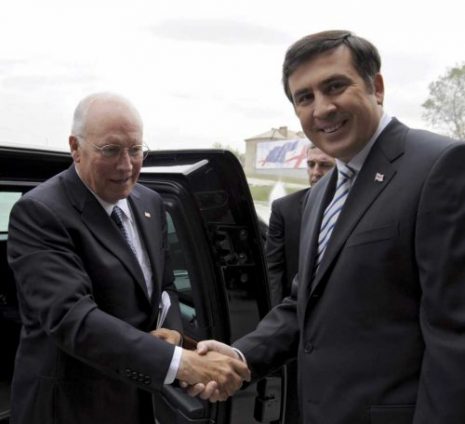
“Gazoo, you’re a genius!”
“Tell me something I don’t know, dumb-dumb. Toodle-loo!”
TWO WEEKS LATER…
“Gazoo, help me! Where are you Gazoo??? The Russians destroyed my army, and they’re deep inside Georgian territory!”
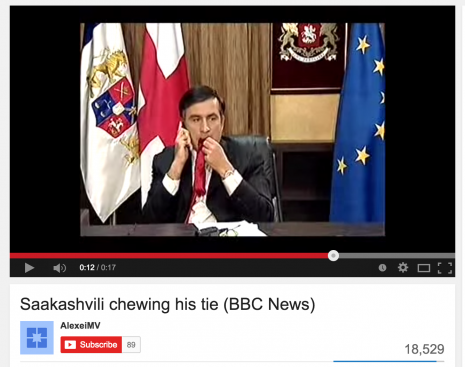
POOF! “Do I have to do everything for you, dumb-dumb?”
“But Gazoo, I thought you said that the Russians would never invade after I took South Ossetia.”
“That’s not what I told you, dumb-dumb. I said that Bush would never let Russia invade. Unfortunately, Bush is a dumb-dumb. And even I, the Great Gazoo, am powerless to help a dumb-dumb.”
“What do I do now? I’m ruined!”
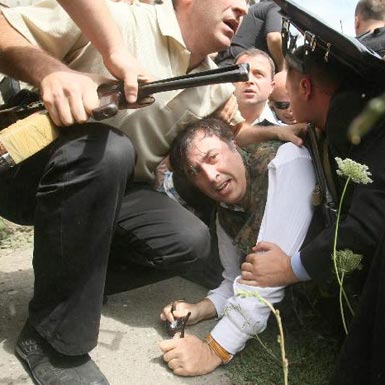
“Gazoo has it all worked out. Your friend John McCain is much smarter than the dumb-dumb Bush, and he agrees that it’s time to start a New Cold War with Russia. He understands how easily America will win the New Cold War, unlike dumb-dumb. As soon as McCain is the new president, everything will work out fine. Toodle-loo, dumb-dumb!”

* * *
Gazoo’s plan with McCain didn’t quite work out, but that was because McCain was a dumb-dumb. It took some time, but with the election of Donald Trump, Gazoo has finally found another earthling smart enough to take his advice.
How hard can it be to understand that, dumb-dumbs?
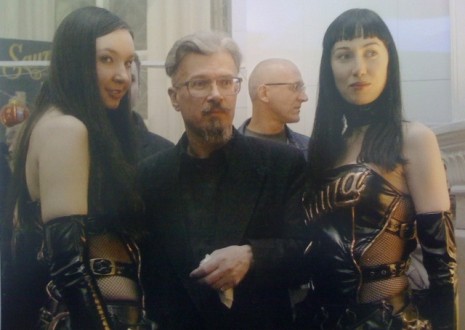
This article was first published in Radar magazine in March, 2008
Backed by an army of punked-out teens, cult Russian novelist Eduard Limonov dedicated himself to taking on Vladimir Putin. Will death threats and nutty supermodels derail his democratic revolution?
It’s 6 a.m. on a Saturday morning in June when I arrive at the home of Russian opposition leader Eduard Limonov. It’s shaping up to be another grimy, humid summer day in Moscow. We need to get an early start if we’re going to make our flight to St. Petersburg, where Garry Kasparov, the chess legend who recently joined the political fray, and Limonov, Russia’s most infamous literary celebrity, are planning to lead a protest against the country’s autocratic president, Vladimir Putin. Together the two head up a ragtag coalition of anti-Kremlin parties known as Other Russia. (more…)
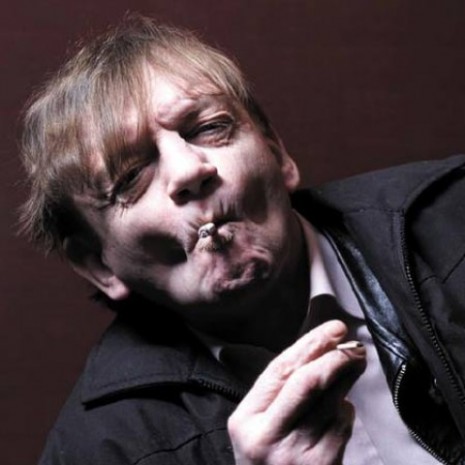
This article was originally published in The eXile on September 17, 2004
Exile editor Mark Ames exposes a rare fawning side while interviewing his lyrical hero, Mark E. Smith of The Fall, while Smith, who is notorious for abusing journalists (even reportedly putting a cigarette out in the eyeball of one Brit journo), reveals a charming, disarming side. Particularly in the number of times he addresses Ames by his first name, giving the interview a kind of Paintwork/Dale Carnegie sensibility. (more…)





























